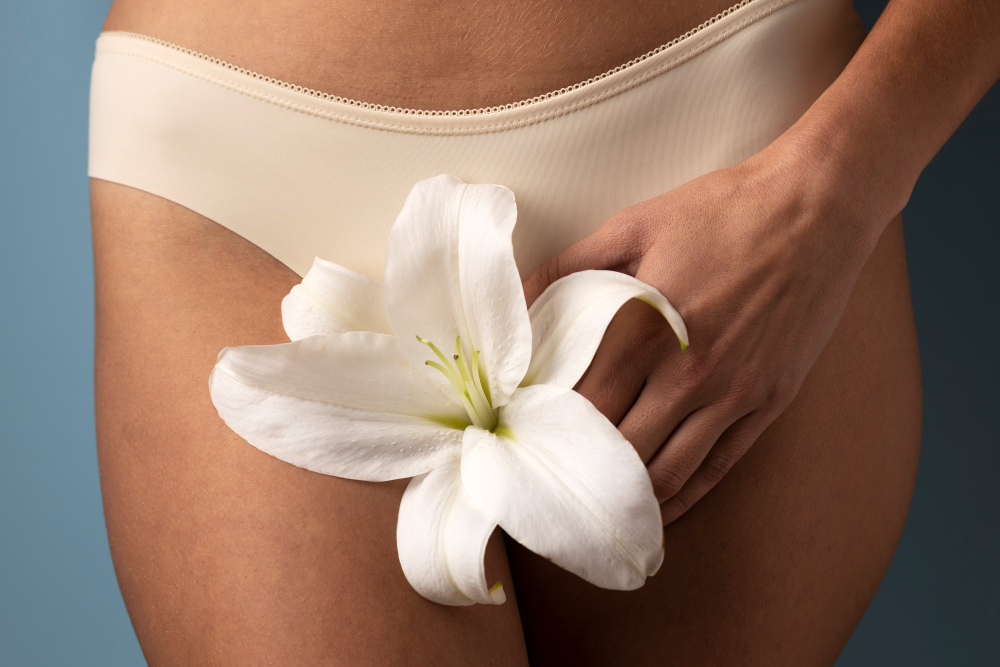Painful vagina after sex is rarely an emergency and is often temporary. This could be due to vigorous sex, a yeast infection, sexually transmitted diseases, a urinary tract infection, or another problem. You can usually treat or prevent most causes.
Is this a cause for concern?
If you experience pain in the vaginal area after intercourse, it is important to understand where the pain is coming from so that you can discover the potential cause and the best treatment.
The vagina is a long, muscular canal that runs from the vaginal opening to the cervix.
The vulva includes the lips, clitoris, vaginal opening and urethral opening. The labia are the lips or folds of skin around the vaginal opening.
Many people say “vagina” when they really mean “vulva”. We’ll keep these differences clear as you read about the reasons why your vaginal area may be sore after sexual activity.
If you experience pain in your vagina or vulva after sexual penetration, there are several reasons why this could be happening. You can treat or prevent most causes. Rarely, pain can be a sign of an emergency.
Let’s explore the many reasons for a painful vaginal area after sexual activity, how to prevent pain, and what you can do to treat it.
Several problems can be behind the painful area of the vagina after sexual penetration. These causes include:
When you’re excited, your body releases natural lubrication. But sometimes, that lubrication is not enough. If your sexual arousal is low or you rush into things without giving yourself time to warm up, you may experience a little more friction than usual.
This friction can lead to tiny, microscopic tears in the vagina, which can cause pain and discomfort. In some cases, it can even lead to infection.

If the sexual penetration is a little rough, you may feel pain or discomfort, both in the vagina and around the vulva. Friction and added pressure can inflame sensitive tissue.
If you or your partner have used fingers, a sex toy, or any other object during sexual activity, you may also experience additional pain.
Depending on the material of the sex toy, some toys may require additional lubrication to reduce friction. Improper use of sex toys can also cause pain after sexual activity.
An allergic reaction to a latex condom, lubricant, or other product you bring into the bedroom can lead to pain. It can also cause genital irritation in the vulva. If anything is inserted into the vagina, the pain can spread into the canal.
Vaginal pain during sex can be the first symptom of sexually transmitted diseases such as chlamydia, gonorrhea or genital herpes.
If you haven’t been tested, consider getting screened for sexually transmitted diseases to rule out infections. If your partner has not been tested, ask them to be tested too. Treatment for both is vital to prevent future re-infections.

Pain after sexual activity in the vulva or vagina is one of the more common symptoms of a yeast infection. Other symptoms include:
# vaginal itching
# island
# pain during urination
# urinary tract infection (UTI)
A UTI can cause more than just pain when you urinate. It can also cause pain in the vaginal area and pelvis.
If you have a UTI during intercourse, you may experience additional irritation and inflammation.
Two Bartholin’s glands are located on either side of the vaginal opening. They provide natural lubrication of the vagina.
Sometimes these cysts, or the channels that move the fluid, can become blocked. This causes tender fluid-filled bumps on one side of the vaginal opening.
Sexual activity can irritate Bartholin’s cysts and the tissue around them, which can cause unexpected pain.

Before and during menopause, hormone levels in the body change dramatically. With less estrogen, the body produces less of its own natural lubricant.
In addition, the tissue in the vagina becomes dry and thinner. This can make penetrative sex more uncomfortable, even painful.
A change in the natural balance of bacteria in the vagina can lead to inflammation. This condition, called vaginitis, can also cause itching and discharge.
Pain can be present in the vagina or lips even without sexual contact. Sexual activity can increase or make it more noticeable.
Sexual touch can cause pain in the vulva, both due to friction and pressure. If the pain is present before you begin sexual activity, it may be a symptom of an underlying condition, such as a vulvar ulcer.
See a doctor if vulva irritation persists for more than a few hours or days. You may have a more serious problem, such as vulvodynia.

Vulvodynia is pain in the vulva that lasts at least 3 months. It is not clear what causes this condition, but it is not uncommon.
In addition to pain after sexual activity, you may feel a throbbing, tingling or burning sensation in the vaginal area. In severe cases, the sensitivity is so great that it is almost impossible to wear clothes or carry out everyday tasks.
Endometriosis occurs when endometrium-like tissue grows outside the uterus in areas such as the ovaries, stomach, and intestines.
Pain during intercourse and painful periods are common symptoms of endometriosis. This pain can be felt deeper in the body, such as in the pelvis or upper part of the vagina.
Uterine fibroids are non-cancerous growths that can develop on or in the uterus. When they get big, they can be quite painful. If you have uterine fibroids, you may feel pain in your pelvis after sexual activity.

IBD is a bacterial infection. Some of the same bacteria that cause sexually transmitted diseases, such as gonorrhea and chlamydia, can cause STIs. Once established, the infection can spread to:
# uterus
# fallopian tubes
# cervix
# ovaries
IBK can cause:
# pelvic pain
# painful sexual intercourse
# painful urination
# bleeding
# discharge

Vaginismus causes the muscles in and around the vagina and vaginal opening to contract tightly. This excludes the vagina and can make penetration during sex uncomfortable, if not impossible.
If you are able to have sexual intercourse, the result may be pain in the vagina and around the vaginal opening after sexual activity.
Birth control suppresses natural hormone levels. It can make the tissues in the vagina thinner and drier.
If you don’t allow proper natural lubrication (more foreplay is the answer) or don’t use another lubricant, you may experience friction pain after sexual activity.
Tight pelvic floor muscles can cause uncomfortable sexual intercourse. Pelvic floor muscles can tighten as a result of:
# bad posture
# certain types of physical activity, such as cycling
# a naturally firmer muscle structure in and around the pelvis
Reverse Kegels can help. Instead of contracting and holding your muscles to build strength, you’ll want to work on relaxing them.

Swelling and irritation of the labia after sexual activity are not always a cause for concern. After all, these tissues naturally swell with excitement as blood and fluid rush to the area.
But if you feel pain in addition to inflammation, you may have less irritation from friction and pressure. This should go away within a few hours or by the next day.
Make an appointment with your doctor if swollen lips persist or if you start to experience other symptoms, such as:
# painful urination
# pounding
# baking
These may be symptoms of an infection that requires prescription treatment.
You can treat some of these conditions at home. Others may need the attention of a healthcare professional.
Pain from friction or pressure should go away on its own within a few hours. Meanwhile, an ice pack can help relieve vulvar discomfort.
Keep the ice pack in place for 5 to 10 minutes. Do not place an ice pack directly on the vulva; have underwear or a washcloth in between. Do not put an ice pack in your vagina.
If using an ice pack is uncomfortable or painful, stop and consult a doctor.
Prescription antibiotics can treat infections such as urinary tract infections, pelvic inflammatory disease, and some sexually transmitted diseases. Some over-the-counter treatments are also available for yeast infections. However, it is recommended that you get a diagnosis and recommended treatment from a health care professional before you start self-medicating.

Hormone replacement therapy may benefit some people. This allows the body to gradually adjust to hormonal changes caused by menopause, for example. It can also help restore natural lubrication and reduce painful sexual penetration.
Healthcare providers may prescribe hormonal birth control for people with endometriosis. This can stop painful episodes.
If you have a Bartholin’s cyst or uterine fibroids, your healthcare provider may recommend surgery to remove them. In the case of a cyst, drainage may be attempted before the gland is removed.
If you want a hand to help reduce friction, fill up with lube. Opt for water-based lubricants, as they are less likely to irritate the delicate skin of the vagina and vulva.
Oil-based lubricants can break down the condom material, which can cause tears.
Don’t be afraid to reapply if you start to feel a pull or tear. When it comes to lubrication, more is almost always a good thing.

If you suspect you are allergic to materials in condoms or sex toys you use, try new ones. Polyurethane condoms are available. Just be aware that they are not as strong as latex.
If the lube makes your vulva sensitive, skip it. Go for synthetic materials that are less likely to cause irritation and pain.
Reverse Kegels can help you relax your pelvic floor muscles. Not only could this reduce pain after intercourse, but it could make sexual penetration more pleasurable from the start.
Some women may experience anxiety after painful sexual penetration. This can prevent them from experiencing sexual pleasure or from relaxing during intercourse.
In that case, sex therapy can help them overcome and manage their anxiety.

If the pain persists for more than a day or two, or you have bleeding or unusual discharge, contact your healthcare provider. Your gynecologist can diagnose and provide the right treatment for you. Early treatment can prevent further complications.
Sexual penetration should never be painful. Talk to a health care professional about the pain you’re experiencing, even if it goes away within a day or two.
Together, you can treat the problem that is causing the pain and prevent it from happening.
Source: www.sitoireseto.com


